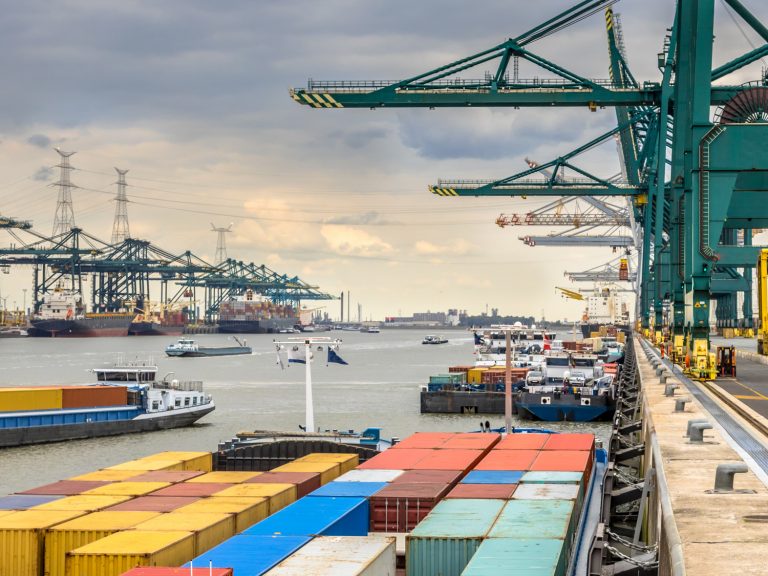
Date:
UK ports axed while Europe’s thrive
While the world’s biggest shipping lines grow weary of Felixstowe and the UK’s primary ports, due to continuing congestion wrecking their vessel schedules, Europe’s hub ports are strengthening their market positions through giant mergers, in moves that may actually benefit UK shippers.
Over the past few months, shipping lines have increasingly refused to quote direct shipments to UK ports, loaded UK freight rates, or imposed congestion surcharges. And even when vessels have been scheduled to call at UK ports, they have frequently cut-and-run or omitted scheduled calls entirely, unloading UK-bound cargo at continental European ports, leaving shippers to repatriate their cargo.
UK ports are likely to continue to suffer from the impact of COVID-safe working practices on their operational capability and the continuing high volumes of traffic, caused by lockdown driven demand and the shift to working and consuming more from home.
In 2020 Felixstowe took 46% longer than the average port to move a container, with vessels typically spending more than 32 hours in port, compared to 18.5 hours for the quickest port. This ‘average’ snapshot does not necessarily reflect the worst of the delays and dire situations, which exceeded these figures at many points in the year.
While the trade press fret that the shipping lines will cut the UK from direct Asia sailings and relegate the country to feeder status – if true – this particular cloud might have a silver lining.
European ports like Rotterdam, the world’s 10th largest, can be cheaper and quicker to ship to and, with super-efficient terminal operations and effective on-delivery to the UK, could be a more successful supply chain solution than shipping direct to inefficient UK ports.
The continent’s hub ports are strengthening their market positions, with Belgium’s Antwerp and Zeebrugge merging and the French ports of Le Havre, Rouen, and Paris joining forces, in two giant mergers, that will close the gap on Rotterdam.
With their advanced handling and storage of containers, breakbulk, and chemical products, the Belgian merger is potentially interesting. Antwerp-Bruges could be one of the largest breakbulk ports in the world, with the largest vehicle throughput in Europe, as well as Europe’s most important chemical hub and a supremely efficient RoRo service for swift on-movement of UK-destined containers.
With 40 commercial ports in the UK and hundreds across continental Europe, offering a blend of feeder, short sea, RoRo and unaccompanied services, we can potentially ship direct to a range of European ports, with swift on-delivery to the UK by RoRo services through local and potentially quieter ports, to avoid congestion and suit every supply chain requirement.
If our article on freeports is also considered for the future there could be many real benefits to using regional ports. We continue to review and assess and will share developments as they continue to happen.
We would encourage full load shippers from Asia to consider the potential of shipping direct to Europe, for a less-stressful, simpler cost comparable experience than shipping direct to the UK.
With 40 commercial ports in the UK and hundreds across continental Europe to choose from, we select the optimum mix of European arrival port and regional UK ports, to blend the most cost effective port-pairs, to complete your transit in the shortest possible time.
Leave vessel stress, space shortages, port disruption, haulage scarcity and congestion surcharges to the others. We have a myriad of options, to safeguard and fine-tune your supply chain.
Please contact your Metro account manager for further details and to discuss your situation and the options available.
